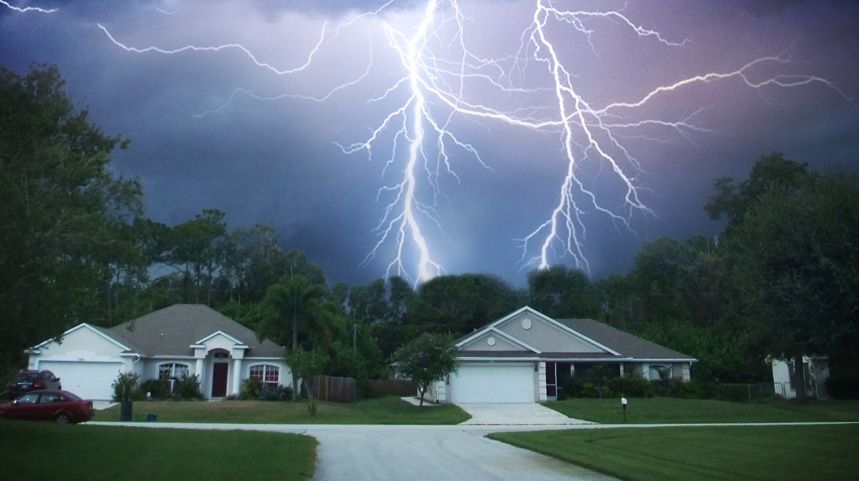
It’s important to know how lightning can impact your home both negatively and positively. Let’s shed a little light on the possibilities…
This is a pretty common side effect of lightning. Lightning can cause a power surge in your home, even if it doesn’t specifically hit your home. A power surge can be caused if lightning hits a power line near your home as well. To be protected from power surges, it’s best to unplug all appliances during a storm (or before if you can). While surge protectors are an option, they aren’t always strong enough to protect all of your appliances and electrical devices.
When lightning hits a home, there is a risk of fire. They are most likely to occur in the attic when a bolt hits the roof. When the heat of the bolt runs through the walls, hitting the wiring and plumbing, it could start a fire as well. Be cognizant, as sometimes you won’t notice that a fire has sparked right away. If this happens, call 911 immediately.
Lightning can puncture a roof or tear through the attic. A strike that’s powerful enough can rip off shingles and gutters. Unfortunately, this occurrence isn’t exactly preventable and can be pretty costly to fix. However, check with your insurance company as many will cover unpreventable damage.
Nitrogen is essential to healthy plant growth. Lightning causes molecules of nitrogen compounds to form. When the lightning hits the ground, the compounds are soaked into the soil with the help of rain. Essentially, lightning is like a hyper fertilizer for your plants! Next time your area endures a thunderstorm, check on your yard a few days later – you’ll notice a difference!

Unless otherwise noted, each use of "Storm Guard," “us,” “we,” or “our” throughout Stormguardrc.com collectively refers to both the Storm Guard brand and the Storm Guard Franchise System, which is made up almost exclusively of independently owned and operated franchise locations.